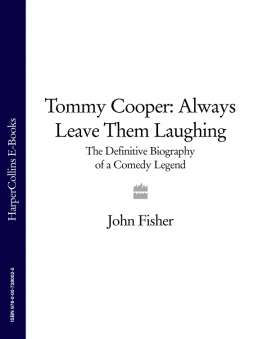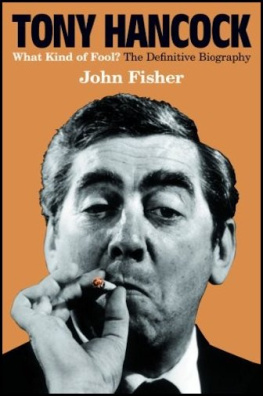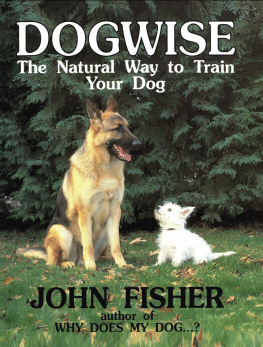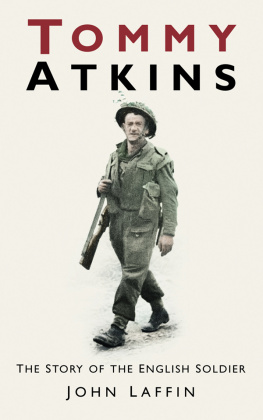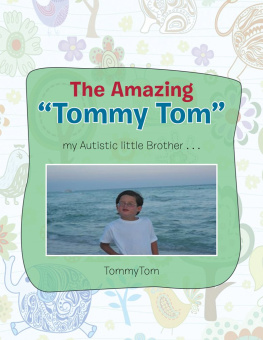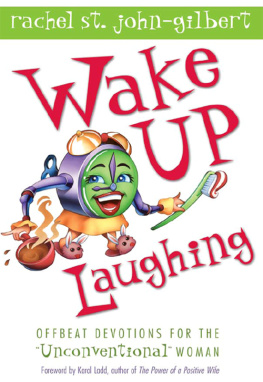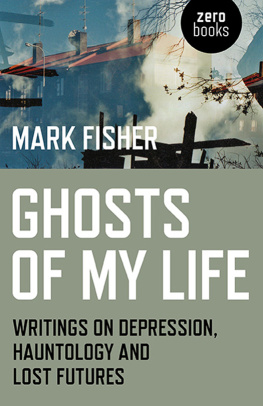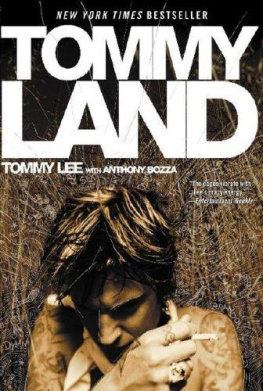John Fisher - Tommy Cooper: Always Leave Them Laughing
Here you can read online John Fisher - Tommy Cooper: Always Leave Them Laughing full text of the book (entire story) in english for free. Download pdf and epub, get meaning, cover and reviews about this ebook. year: 2009, publisher: HarperCollins UK, genre: Detective and thriller. Description of the work, (preface) as well as reviews are available. Best literature library LitArk.com created for fans of good reading and offers a wide selection of genres:
Romance novel
Science fiction
Adventure
Detective
Science
History
Home and family
Prose
Art
Politics
Computer
Non-fiction
Religion
Business
Children
Humor
Choose a favorite category and find really read worthwhile books. Enjoy immersion in the world of imagination, feel the emotions of the characters or learn something new for yourself, make an fascinating discovery.
- Book:Tommy Cooper: Always Leave Them Laughing
- Author:
- Publisher:HarperCollins UK
- Genre:
- Year:2009
- Rating:5 / 5
- Favourites:Add to favourites
- Your mark:
- 100
- 1
- 2
- 3
- 4
- 5
Tommy Cooper: Always Leave Them Laughing: summary, description and annotation
We offer to read an annotation, description, summary or preface (depends on what the author of the book "Tommy Cooper: Always Leave Them Laughing" wrote himself). If you haven't found the necessary information about the book — write in the comments, we will try to find it.
Tommy Cooper: Always Leave Them Laughing — read online for free the complete book (whole text) full work
Below is the text of the book, divided by pages. System saving the place of the last page read, allows you to conveniently read the book "Tommy Cooper: Always Leave Them Laughing" online for free, without having to search again every time where you left off. Put a bookmark, and you can go to the page where you finished reading at any time.
Font size:
Interval:
Bookmark:
For Gwen,
For Vicky,
And for Henry & Doris Lewis,
who also had a daughter named Victoria.
Tommy Cooper has been a part of my comic consciousness for almost as long as I can recall. Back in the Fifties I remember waiting despondently with my mother for her to be served in a greengrocers shop in the Southampton suburb of Shirley and being briefly distracted by a giant cardboard cut-out of the fez-capped zany producing a large citrus specimen of South African origin from the folds of his mysterious cloak. The caption said it all with the conciseness that characterized a Cooper one-liner: Cape Fruit! Grapefruit! It might have been the other way around. It does not matter. Even without the trademark chortle that the man himself would have added in performance, my impatience gave way to laughter. I was scarcely out of short trousers at the time.
In later years I have often thought how appropriate it was to be familiarized with this great clown in a store for fruit and vegetables. For a child of the time his outsize noddle resembled the prototype of Mr Potato Head, the craze that encouraged kids to rummage in the vegetable bin and then to create an identity from the plastic accessories provided for his ears, eyes, and other facial features. A more academic allusion might align the whole Cooper appearance with the work of the sixteenth-century Italian artist, Giuseppe Arcimboldo, skilled at creating faces out of the constituent parts of the aforesaid bin. He would surely have applauded the appearance of Cooper that we all call to mind, one with not only a spud for a head, but runner beans for legs, bunches of bananas for hands, turnip nose, dark olive eyes, crinkly endive hair, even an upturned flowerpot for headwear. Today, when gardeners and chefs appear to command more air time and celebrity than clowns and gagsters, Tommy might have appreciated the irony.
It was not always so. There was a time when a mere two- channel television service lost no opportunity to put mainstream performing talent on screen. One opening was provided by the summer season shows that were an essential part of the British seaside holiday. Every Friday during high summer the BBC Outside Broadcast vans would decamp to the coast to provide the viewer with a grainy black and white sample of what they were missing at one resort or another. This was how I first came to see Cooper in performance, televised to the nation from the end of a pier in Great Yarmouth on a bill with the singer Eve Boswell and the now forgotten stand-up comic Derek Roy sometime in the late Fifties. The fact that I can pinpoint the first time I saw this remarkable comedian, whereas the personalized debuts of others have long since become indistinct, is significant. Whereas other comedians of my then limited experience made the act of comedy a challenge with the audience, he made it a game. The hilarious abandon as he zigzagged his way from one crazy prop to another, the sheer delight he managed to communicate through the veil of his own frustration and bewilderment were things to savour. Television had never been so entertaining and I could hardly wait to see him live on stage. Another summer, another resort, and nearby Bournemouth claimed the comedy wizard. I was not disappointed, my initial response enhanced a hundred times. Like all the true Variety greats, he was always at his most effective in the welcoming environment of a real theatre, even if he worked in an era when visibility on television was essential to fill seats in the first place.
The years moved on and in my late teens I found myself attending a magicians convention in Eastbourne. It was the morning of the Dealers Dem, the event at which those who devise and sell tricks to the rabbit in the hat brigade are given the opportunity to perform their new miracles for their prospective clientele. The event was already under way. I was sitting about six rows from the back. There was an empty seat to my left. Then I became aware of a minor disturbance caused by somebody clambering past the knees of those already seated to take up the empty position. It was the gentle giant of comedy magic. Nobody clambered to funnier effect than Cooper. All eyes around him were now averted from the stage. Finding his place, he briefly acknowledged myself and his neighbour on the other side, before settling down into his chair. What then happened was a scene of unintentional comic chaos caused by the fact that throughout this Tommy was holding a cup and saucer in one hand, a glass of something stronger in the other, juggling a convention programme and a newspaper under one arm, and smoking a cigar, all at the same time. At no point did he ask the help of either of us sitting alongside him. At no point was a drop of liquid spilt. He was not consciously putting on an act. It just happened that way.
This memory achieved piquancy a few years later when, playing the fianc in a sketch on his television show, he sits on a sofa between his prospective in-laws and attempts to juggle cup of tea, glass of whisky, plate of cake, and cigar. His handling of the situation is one of applause-worthy brilliance, not least because it came so naturally to him. More importantly, in that Eastbourne auditorium, the atmosphere seemed to brighten the moment he appeared on the scene. To meet him in such a situation was to realize that his stage persona was indistinguishable from his offstage presence. To be in his company was a pick-me-up, a tonic, a carnival with no need for fairground music or fancy dress. The sense of fun was endemic in the man. If those struggling to ply their wares on that Eastbourne stage that morning had been able to package this quality, they would have become millionaires overnight.
It was a privilege to enjoy Tommys company on many occasions provided by the social side of the magic scene in the years to come. At the time of Eastbourne, however, in the early Sixties, I had no idea that I would one day come to work with my hero, producing several of his last television appearances. One of those turned out to be his penultimate performance in the medium prior to his death on live television in 1984. Tommy was far from a well man. He speech was slightly slurred, his stance slightly stooped, but his comedic playfulness and unerring sense of audience control were undiminished. That night he slew them. As the credits rolled the crowd cheered him as never before. Within minutes I went to his dressing room to congratulate him. Tommy was standing there in his under vest and long johns, drenched in sweat and drained, a semi-deflated Michelin Man. I instinctively flung my arms around him in gratitude and exclaimed how well he had done. I can feel the clamminess to this day and often reflect on the ludicrous image of such an incongruous hug. He didnt say a word. There was a pause. He sat down, took a sip from a glass of brandy that he should not have been drinking, took a puff from a cigar that he should not have been smoking, and only then did he speak: I didnt let you down, did I?
When he died the most visible of deaths on live television on the stage of Londons Her Majestys Theatre on 15 April 1984, I had no idea that I had not worked with Tommy for the last time. By the end of the decade an executive role with Thames Television enabled me to promote the Cooper legend through several series of programmes that repackaged his best material. Along the way he became an inevitable subject of my Channel 4 series, Heroes of Comedy. Indirectly this led to the idea of a stage show based on his life and repertoire. Jus Like That! brought Cooper back to the West End when it was staged at the Garrick Theatre in 2003. Throughout these activities I was supported by Tommys widow, Gwen.
My visits to the Cooper household to discuss these projects were over laden with generosity, not to mention the bountiful supply of the strongest gins and tonics in Chiswick. I never came away without a personal memento of the man I was getting to know even better in death than in life: one day the police whistle travelled by Tommy for use at the end of his Hats routine, another the prototype found on holiday in a French antique shop of the cone and ball connected by a string with which he brilliantly managed to knock himself into a semi-dazed condition at virtually every show he performed. There were his thumb tip the secret flesh-toned magicians gimmick that makes many a miracle possible and false noses attached to elastic and trick billiard cues, even a tea cup with one straight side, to all intents and purposes sliced in half with its handle still attached for those occasions when hed joke in company that he wanted just half a cup of tea. On one occasion this magnificent lady even went to the trouble of baking for me to take away one of her husbands favourite raspberry sponges, distinguished by its triple layering to maximize the jam content. In life as in performance Tommy had little appetite for half measures.
Font size:
Interval:
Bookmark:
Similar books «Tommy Cooper: Always Leave Them Laughing»
Look at similar books to Tommy Cooper: Always Leave Them Laughing. We have selected literature similar in name and meaning in the hope of providing readers with more options to find new, interesting, not yet read works.
Discussion, reviews of the book Tommy Cooper: Always Leave Them Laughing and just readers' own opinions. Leave your comments, write what you think about the work, its meaning or the main characters. Specify what exactly you liked and what you didn't like, and why you think so.

